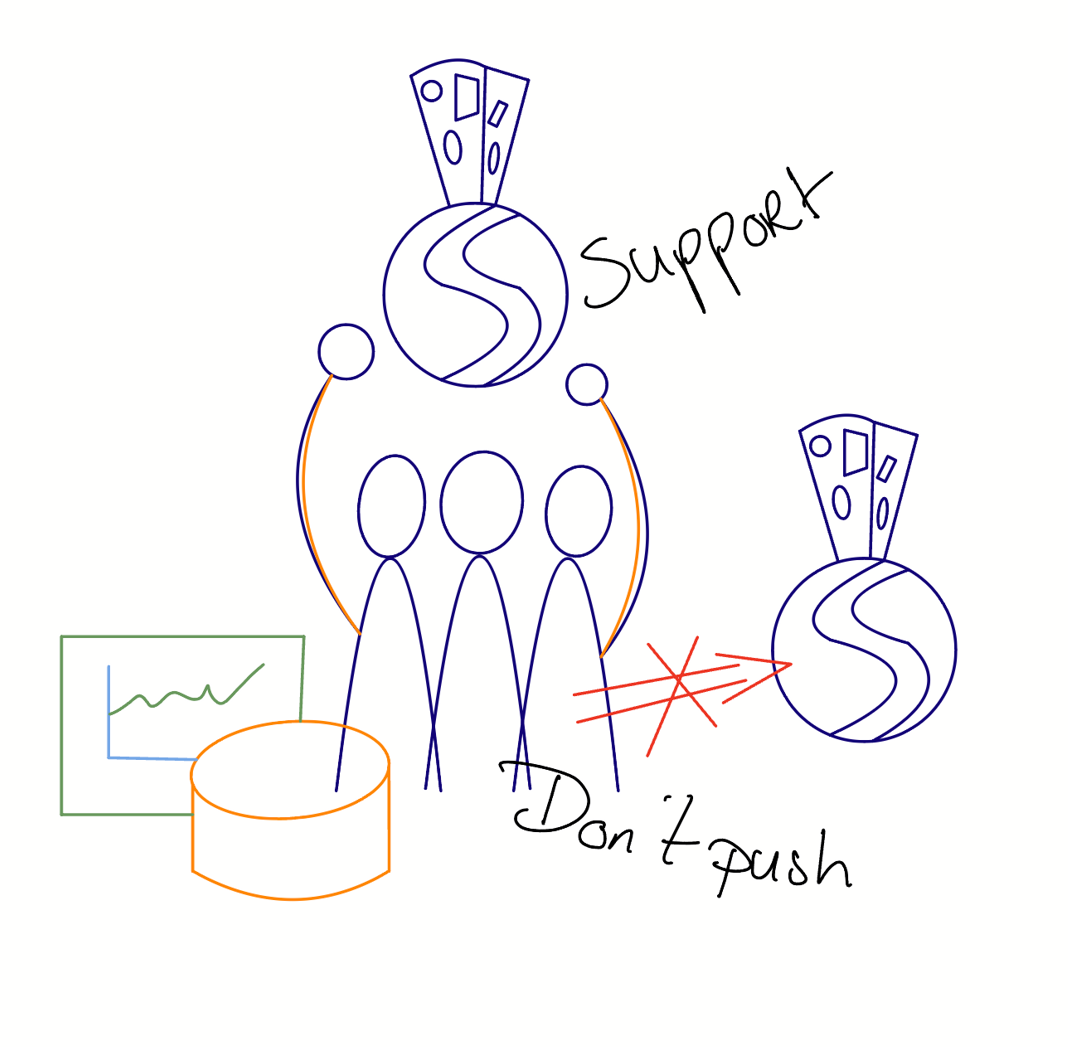As a data team, you can only have a supporting role
Author:
30 June 2023
In the modern business world, collecting, analyzing and interpreting data has become a crucial part of a company's success. As a result, data teams have been set up in many organizations to take on these responsibilities. While data teams are invaluable to a business, it is important to understand that they do not directly generate value. Instead, they play a supporting role in enabling the broader business to create value. In this blog, I share my views on why the data team has a supporting role and why it is crucial to optimize the collaboration between the data team and the rest of the organization.
Data as a means, not an end:
Employees on the data team are experts in data analysis and interpreting results. While these insights are valuable, it is important to understand that data by itself does not generate value. It is the actions and decisions made based on that data that ultimately create value for the company. As an example, I often use the huge mountain of reports created for the business in PowerBI. These are often reports with dozens of KPIs and very many static details, nice for stakeholders to see how things are going but no direct actions arise from them.
The importance of context:
To generate value from data, context is essential. The data team can perform comprehensive analysis and provide valuable insights, but understanding the broader business context and goals is crucial to effectively leverage these insights. The data team works closely with the various departments within the company to understand this context and translate it into relevant analysis and reporting. By collaborating with business operations, the (right) data can be put into context and therefore make valuable contributions that meet the specific needs of the business.
In addition, the data team plays an important role in promoting data-driven decision-making within the company. By providing reliable and well-interpreted data, they help eliminate guesswork and intuitive decisions that can be detrimental in the long run. They work with different departments to identify what questions need to be answered and what data is needed to answer those questions.
Continuous learning and optimization:
The data team also has an important role in facilitating a culture of continuous learning and optimization within the company. Through feedback loops and monitoring data from decisions made, we create new data that in turn can be analyzed which can lead to improvements and growth. The data team works with business operations to evaluate the impact of decisions made and make recommendations for v

